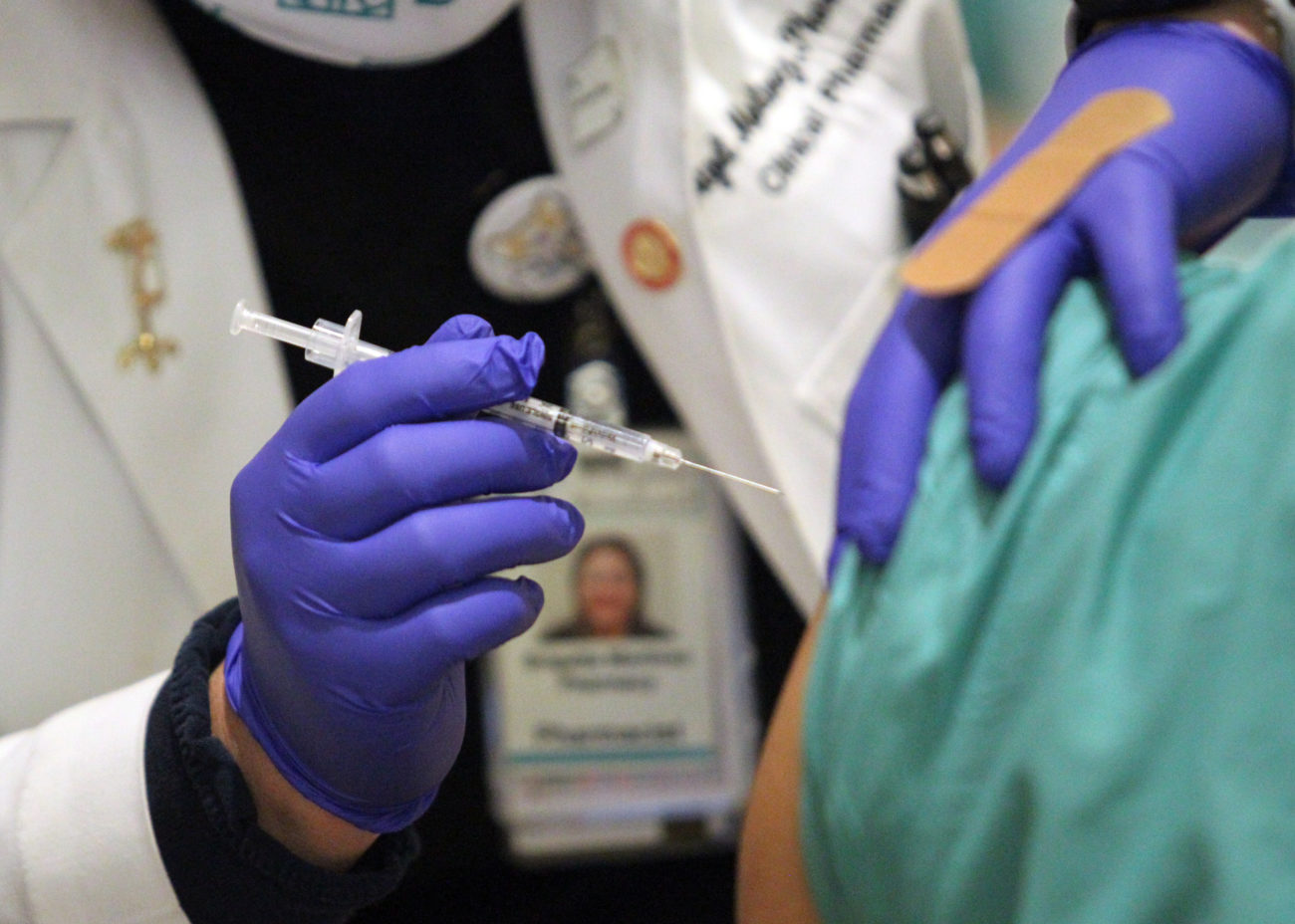Health officials in Texas are preparing to introduce a single-dose COVID-19 vaccine option to their allocations distributed to local providers in the coming weeks.
Texas Department of State Health Services officials said during a press call Thursday they are anticipating the release of the Johnson & Johnson Janssen COVID-19 vaccine as early as next month.
“The earliest time we’re looking at is about the first of March for the availability of this vaccine,” Dr. Saroj Rai, a science adviser, said.
The third vaccine is slightly less effective against the virus, but it only requires one dose and can be more easily stored by vaccine providers.
The efficacy rate of the vaccine will be 72% in the United States, 66% in Latin America and 57% in South Africa, 28 days post-vaccination, according to the company’s news release.
Rai said there were no related hospitalizations or deaths in any of the clinical trials conducted across eight countries.
Though the other vaccines, Moderna and Pfizer, have efficacy rates above 90%, the rates are not comparable.
“At this point, it is difficult to say if one vaccine is better than the other because all these vaccines were not studied in the same clinical trial, that is they were not compared head to head,” Rai said.
The technology used in all three vaccines target the COVID-19 spike protein used to enter a cell, but while Moderna and Pfizer’s version uses messenger RNA, the Janssen version employs a different strategy to deliver a copy of the spike that trains the human body to recognize it.
“It uses the adenovirus to deliver the COVID-19 SARS spike protein, and the adenovirus vector has been modified so it will not replicate once the vaccine has been administered and cause any disease or illnesses,” Rai said.
Due to the change in technology, the Janssen vaccine does not require ultra-low refrigeration that limits the number of providers equipped to receive it. According to Rai, the vaccine could be refrigerated for up to three months and frozen for up to two years.
The Janssen vaccine was tested against the COVID-19 variant found in South Africa. Its efficacy rate lowered.
“It is showing 57% efficacy,” Rai said. “The other vaccines, the Moderna and Pfizer, as we know they have not been actually tested among those variants, but they have in vitro shown some efficacy against that variant as well.” She added more data is expected to reveal the efficacy against the variants.
The vaccine is expected to receive FDA approval at the end of the month.
Providers are able to request a particular vaccine. “However, at the end of the day, depending on what the vaccine supply is for the state at that particular time, I may not be able to honor the specific request that they want,” said Imelda Garcia, associate commissioner for laboratory and infectious disease services and Expert Vaccine Allocation Panel chair.
Providers can reject an allocation offer, but “that means that I won’t necessarily replace it with another one, because our limited supply, we are only able to make available what we have received in the state.”




